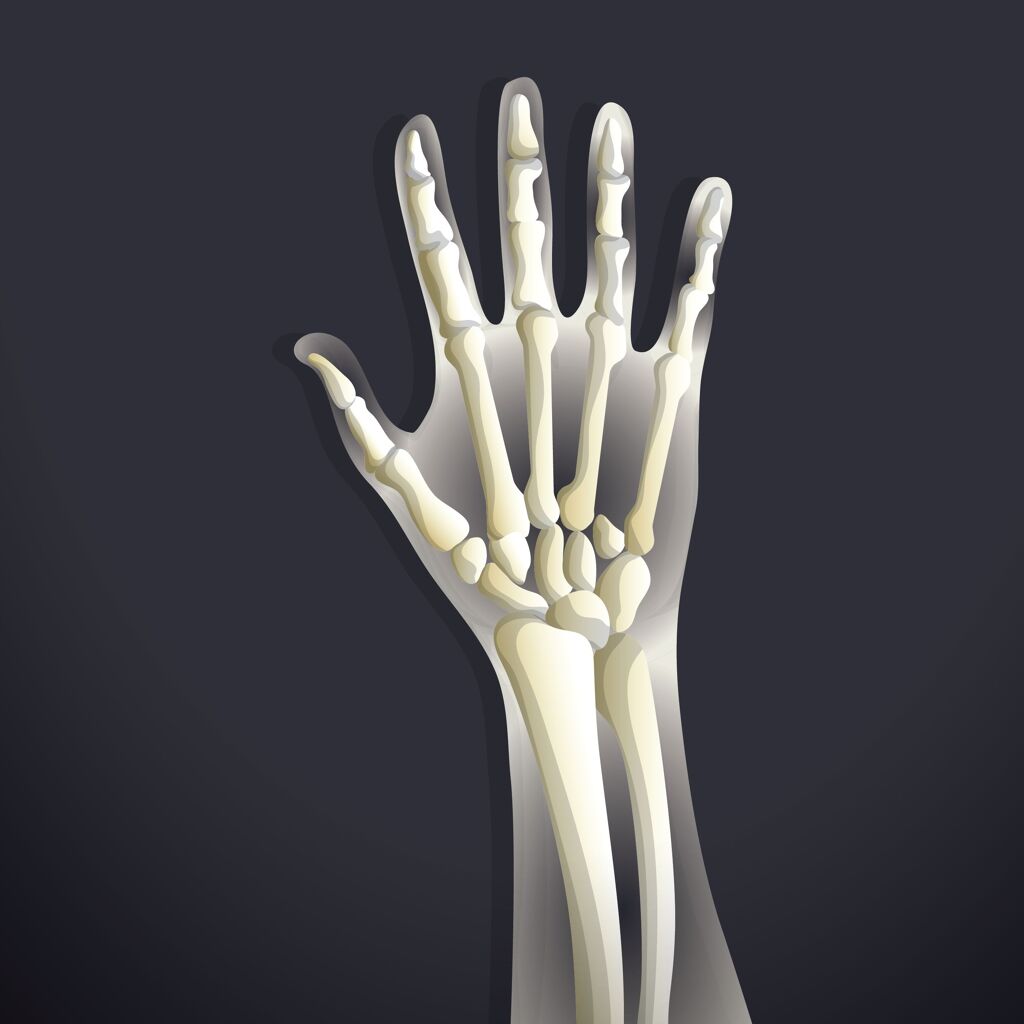Multiple Sclerosis (MS) & Constipation: Top 10 Hidden Root Causes

Do you suffer from MS and constipation or just constipation? Do you know what the root cause of your constipation is? If you are struggling with these issues, then read on for the details!
In this blog on constipation, you will learn:
- How digestive issues are common with Multiple Sclerosis (MS)
- How constipation with or without MS can often have one or more underlying root causes
- What the root causes of constipation are
Constipation can be due to many factors. Issues related to Multiple Sclerosis (MS) may be the cause of your constipation. But if you don’t have Multiple Sclerosis, there may be other underlying root causes. This blog on the root causes of constipation applies to people with MS and to people who don’t have MS. We will review the various components that can contribute to, or directly cause, constipation.
In future blogs, we will cover the lab tests to find the cause(s) of constipation and how we can treat it. Please stay with us for this series of blogs on Multiple Sclerosis & Constipation.
What is Multiple Sclerosis (MS)?
- In the US, 1 million people are living with MS (National MS Society, 2023).
- MS is the most common non-traumatic cause of disability in young adults today (Preziosi G, 2018).
- MS is unpredictable and affects different people in different ways.
Multiple Sclerosis is a chronic disease affecting the central nervous system, including the brain and spinal cord. It is an autoimmune condition in which the body attacks itself by mistake.
In MS, the immune system attacks nerve fibers and the myelin sheath in the brain and spinal cord. The myelin sheath is the fatty tissue that surrounds and protects nerve fibers.
The autoimmune attack damages the myelin sheath which normally protects nerves. In addition to myelin, nerve fibers and neurons in the central nervous system (i.e., the brain and spinal cord) are damaged. Myelin gets destroyed in many areas and there is chronic inflammation from the autoimmune damage to myelin and nerve cells.
Once the myelin protection is damaged, the nerves become damaged leading to communication problems between the brain and the rest of the body. Normally, nerves transmit electrical signals to help with sensory perception and movement.
Damaged nerves cannot transmit electrical messages to and from the brain as they are meant to. This affects nerve signaling and how different parts of the body function, including the digestive tract. This type of damage to myelin, neurons and neurological pathways eventually leads to neurodegeneration and neurological symptoms.
What is Constipation?
Constipation is not having a regular bowel movement or being unable to completely empty the bowel. It is generally defined as having fewer than three bowel movements a week. Being constipated can cause stools to be hard and lumpy, or unusually large or small. Constipation is a very common issue with Multiple Sclerosis and often becomes chronic.
Multiple Sclerosis Can Cause Constipation
- MS interrupts messages that the nerves send to and from the brain. Among other important information for bodily functions, these messages signal that it’s time for a bowel movement.
- Multiple Sclerosis can affect pelvic floor and anal sphincter muscles, which are part of the process of a bowel movement.
- Motility, or the movement of food through the intestinal tract, may be slowed with MS.
- Insufficient fluid intake contributes to constipation. MS patients with difficulty being mobile may simply not be able to get to the toilet often or easily, so they may intentionally drink less water.
- Too little exercise is a factor in constipation. Again, people with Multiple Sclerosis and mobility issues may not be able to exercise very much, or at all.
- Some medications used for MS can cause constipation.
Other Root Causes of Constipation
Constipation is the most common gastrointestinal problem in the US (NIH, 2018). It can significantly affect and lower one’s quality of life.
- 16 in 100 adults have symptoms of constipation (NIH, 2018).
- 33 in 100 adults aged 60 and older have symptoms of constipation (NIH, 2018).
Apart from issues related to MS, there may be other underlying root causes for constipation. This applies to people with MS as well as people who don’t have MS. Many things can contribute to, or directly cause, constipation.
The causes of constipation can be complex. Diet and a sedentary lifestyle have a significant influence on constipation. Changing diet and lifestyle are the first‐line recommendations for treatment.
What are the Underlying Root Causes of Constipation?
1.) Gut Dysfunction
Gut Dysbiosis
Gut dysbiosis is when the ‘bad’ pathogenic bacteria in the gut outnumber the ‘good’ health-promoting bacteria. This imbalance can lead to constipation and other digestive issues.
Infections and Pathogens
Infections, like the H pylori bacteria, or other pathogens, like parasites or bad gut bacteria, can cause constipation. The pathogenic bacteria can produce toxins which affect the muscles in the intestines and slow down peristalsis or intestinal movement. When peristalsis is slowed, the pathogens don’t get excreted with the stool as quickly as they should. It is a self-protective act to help the pathogens survive. It can lead to constipation and an environment in which the pathogens can survive and grow.
Low Stomach Acid
If stomach acid is low, then the whole digestive system is not functioning as it should. Constipation can be a common symptom. Low stomach acid may delay bile and pancreatic enzyme production. These are needed to break down foods and promote gut motility. It is important to understand why stomach acid is low. This could be due to stress, aging, an H pylori infection, an autoimmune condition or other reasons.
Irritable Bowel Syndrome
Irritable bowel syndrome (IBS) is a fairly common problem. Symptoms include cramping, abdominal pain, bloating, gas, and diarrhea or constipation or both. IBS can become chronic for some people.
IBS is more common in people with MS. It affects 20% of people with MS (Levinthal DJ, 2013). That is twice the rate of the overall population (Levinthal DJ, 2013).
SIBO
IBS is often a result of SIBO, or small intestinal bacterial overgrowth. SIBO happens when there are excessive levels of gut bacteria in the small intestine.
Gut bacteria are meant to be in the large intestine so if they are in the small intestine, this causes symptoms. SIBO is also related to slower gut motility. Slower gut motility allows excessive amount of gut bacteria to stay in the small intestine, which is problematic.
Key symptoms of SIBO are smelly gas, bloating, abdominal pain and diarrhea and / or constipation. This is quite similar to IBS symptoms. In fact, 78% of IBS sufferers actually have SIBO (Ghoshal UC, 2017). In a smaller more recent study, the prevalence of SIBO in IBS was 36.4% (Ndong PO, 2023). Often, if the SIBO in these cases is resolved, the IBS is treated or at least, vastly improved.
2.) Medications
Some medications can cause constipation.
To Read About Blog Topic, Scroll Down
Want To Work With Our Clinic?
Do you have a chronic or mystery illness that no one has been able to help you with? Are you simply wanting to re-connect with a healthier version of yourself? It’s Time To Finally Feel Better!
3.) Diet
Food Allergies or Sensitivities
An intolerance or sensitivity to certain foods (gluten, dairy, eggs, nuts for example) can be a trigger for IBS, constipation and other digestive issues. The most common food sensitivities associated with constipation are gluten and dairy.
Low Fiber Diet
Fiber is found in fruits and vegetables. Processed foods have little to no fiber. A diet too low in fiber can contribute to constipation. Fiber absorbs water and causes stools to be larger, softer and easier to pass. Increasing fiber intake helps cure constipation in many people. But, in some cases with more severe constipation, increasing fiber can make constipation worse and leads to gas and abdominal discomfort.
Low Fat
Low fat diets can contribute to constipation. Getting enough fat helps normalize intestinal motility and lubricate the bowels.
Micronutrient Imbalances or Deficiencies
Nutrients, such as low magnesium, low vitamin B12, high or low vitamin D, and high calcium can be an issue.
Magnesium, for example, is helpful because it relaxes the muscles. It attracts water and increases the amount of water in the intestines. This softens stools, making it easier to pass a bowel movement.
Low vitamin D status is strongly linked to chronic constipation (Panarese A, 2019). This is thought to be due to the increase in inflammation and poor immune response that comes with a vitamin D deficiency.
Interestingly, low vitamin D is common in MS patients (Bäcker-Koduah P, 2020). The D deficiency may affect disease progression and outcome in Multiple Sclerosis (Bäcker-Koduah P, 2020). Maintaining a healthy vitamin D level can decrease the risk of developing MS. One study found that people with vitamin D levels greater than 40 ng/ml were 62% less likely to develop MS (Munger KL, 2006).
4.) Dehydration
Drinking plenty of fluid, especially water, softens the stool and makes it easier to pass. The water allows waste to be flushed from the body. Inadequate water intake and dehydration can lead to hard stools and constipation.
5.) Stress
Stress has multiple effects on gut and overall health. It can lower stomach acid, contribute to leaky gut, deplete magnesium levels and change levels of neurotransmitters in the bowel.
Stress hormones can directly influence bowel movements. In addition, people under stress are more likely to have a poor diet, drink too little water and get less exercise which all contribute to constipation.
6.) Ignoring the Urge
Holding in a bowel movement may lead to constipation. Repeatedly ignoring the urge to move the bowels may mean you eventually stop feeling the urge to go.
7. ) Sedentary Lifestyle
A lack of exercise can cause constipation. The colon responds to activity and good muscle tone is important for regular bowel movements. The abdominal wall muscles are involved in the process of a bowel movement. If these muscles are weak, they cannot perform well and may lead to constipation.
8.) A Change in Routine or Lifestyle
Any change to your normal routine can contribute to constipation. A sudden change in diet, travel, a change in your exercise, bedtime or something else can affect bowel movements. If you become constipated for apparently no reason, notice if your routine has changed.
9.) Constipating Foods
Certain foods are constipating. Diary is one. Lactose can produce methane gas. This slows down the transition time for food to travel through the gut. This can cause constipation. A lactose intolerance usually causes diarrhea, but in the minority of cases it can cause constipation.
Low fiber foods (fried food, eggs, meats, desserts, cakes, white bread and alcohol) can be the cause of constipation. Fiber in vegetables and fruits makes stools easier to pass. Eating too many low fiber, constipating foods can be a problem.
10.) Diseases or Conditions
Certain diseases such as celiac, depression, hypothyroidism, cancer and many others can cause constipation as an effect of the illness. As discussed, neurological disorders, such as Multiple Sclerosis, Parkinson’s Disease, spinal cord injury or a stroke may also be responsible.
All of these root causes for constipation are treatable. If we work on repairing gut health, we can resolve digestive issues like constipation. There are natural solutions involving diet or lifestyle changes. We can use herbs or supplements as well.
In our next blog in this series, we will cover lab testing to identify the root cause of constipation. The last blog of the series will explain treatment for constipation.
Summary
- MS is a chronic disease and an autoimmune condition. It affects the central nervous system. The autoimmune attack leads to damaged nerves and impaired nerve signaling. This affects how different parts of the body function, including the digestive tract.
- The precise cause of MS is not known but we know that gut health is part of the picture.
- Constipation is not having a regular bowel movement or being unable to completely empty the bowel. Constipation is the most common gastrointestinal problem in the US (NIH, 2018).
- Constipation and MS are linked because the gut is linked to the brain via the gut-brain axis.
- The causes of constipation can be complex. Diet and a sedentary lifestyle have a significant influence on constipation. Changing diet and lifestyle are the first‐line recommendations to treat constipation.
- There are many underlying root causes of constipation. It could be due to:
- Gut dysbiosis
- Infections and Pathogens
- Low Stomach Acid
- IBS
- SIBO
- Medications
- Food Sensitivities or Intolerances
- Low Fiber Diet
- Low Fat
- Micronutrient Imbalances or deficiencies
- Dehydration
- Stress Ignoring the Urge
- Sedentary lifestyle
- A Change in Routine or Lifestyle
- Constipating Foods
- Diseases or Conditions (celiac, depression, hypothyroidism, cancer, neurological disorders such as MS)
- Root causes for constipation are treatable. If we work on repairing gut health, we can resolve digestive issues like constipation.
** Please stay tuned for our next Blog! **
As always, please get in touch with us. If you or someone you know is struggling with Multiple Sclerosis and/ or digestive symptoms, contact our clinic today.
We can work on any issue(s) and improve your health. Book a free health evaluation call with us today, to see how we can help you with your concerns. We can answer your questions and help you book an initial consult with one of the functional medicine doctors in our clinic.
Are You Suffering From A Chronic Illness?
Does your current health situation look like this…
- Do you feel that you have tried many things and either nothing works, or the treatment does not hold?
- Have you been told that there is nothing that can be done to reverse your illness and you just need to manage symptoms?
- Does your illness impact your work, your family, your happiness and your social life?
We specialize in finding answers and solutions for complicated chronic illness when people feel like they have tried everything. If this sounds like you, book a free call with us to see if we are the right fit for your health goals.
Dr. Miles has spoken for the following organizations:

















